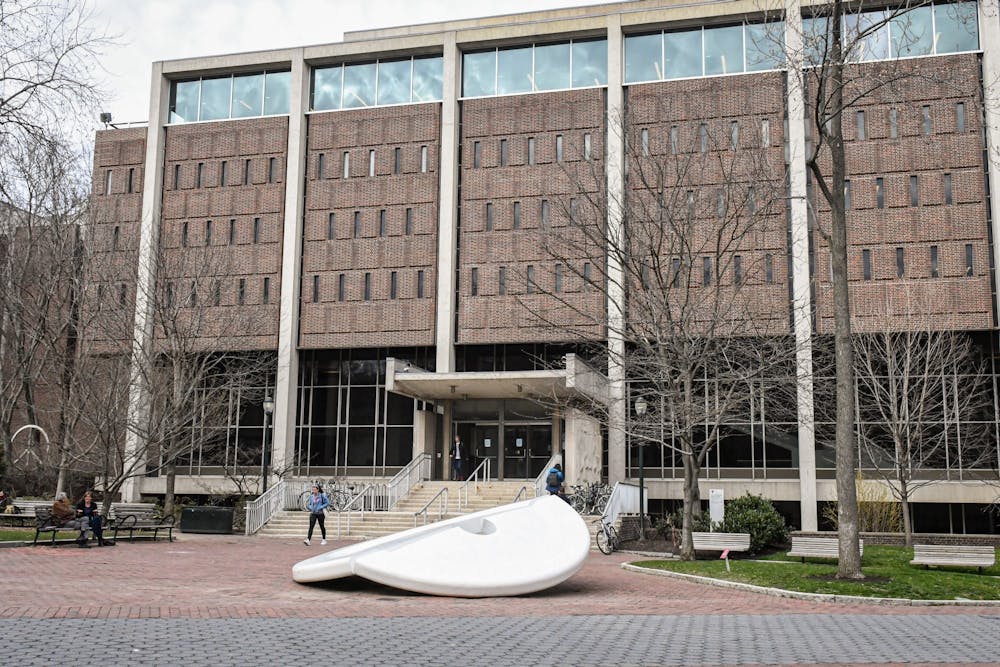
Van Pelt Library, one of Penn's Libraries, on March 11, 2020.
Credit: Sukhmani KaurPenn Libraries received the works of the late public health historian and activist Elizabeth Fee in early 2021.
Fee’s surviving spouse, Mary Garofalo, donated personal papers the leading scholar wrote during her time as a pioneer in advocacy, health, and history. Garofalo also donated funds to go towards the hiring of an archivist who will process the collection, Penn Libraries reported.
Although Fee is not directly related to Penn, her personal works join other endeavors Penn has pursued to preserve historic papers. In 2019, Penn partnered with the Athenaeum, a special collections library in Philadelphia where Penn students can access thousands of works the collection hosts.
Fee’s most influential works tackle the history and epidemic of the AIDS virus, about which she authored two books. Through her work discussing AIDS and other pertinent social issues, Fee answered and informed the public on lingering questions of topics relevant to the public’s health, Penn Libraries wrote.
The National Library of Medicine commemorated Fee in 2018 after she passed, writing that her work “inspires new ways of learning and understanding the history of medicine and public health, and its significance for today and the future.”
Fee had worked for the NLM for over 22 years as chief of the NLM History of Medicine Division. Before that, she was a professor of science and medical history at the State University of New York at Binghamton and later Johns Hopkins School of Public Health, according to the NLM.
David Barnes, an associate professor in the History and Sociology of Science department, was impassioned and excited by Penn’s acquisition of Fee’s work.
“I can’t think of any historian who [paired activism and scholarship] better than Liz Fee,” Barnes told Penn Libraries. “It came from her decades of involvement with various movements. She didn’t come in from the outside and say ‘I have a Ph.D. Let me tell you the meaning of what you're doing.’ It was organic for her.”
The Daily Pennsylvanian is an independent, student-run newspaper. Please consider making a donation to support the coverage that shapes the University. Your generosity ensures a future of strong journalism at Penn.
Donate







